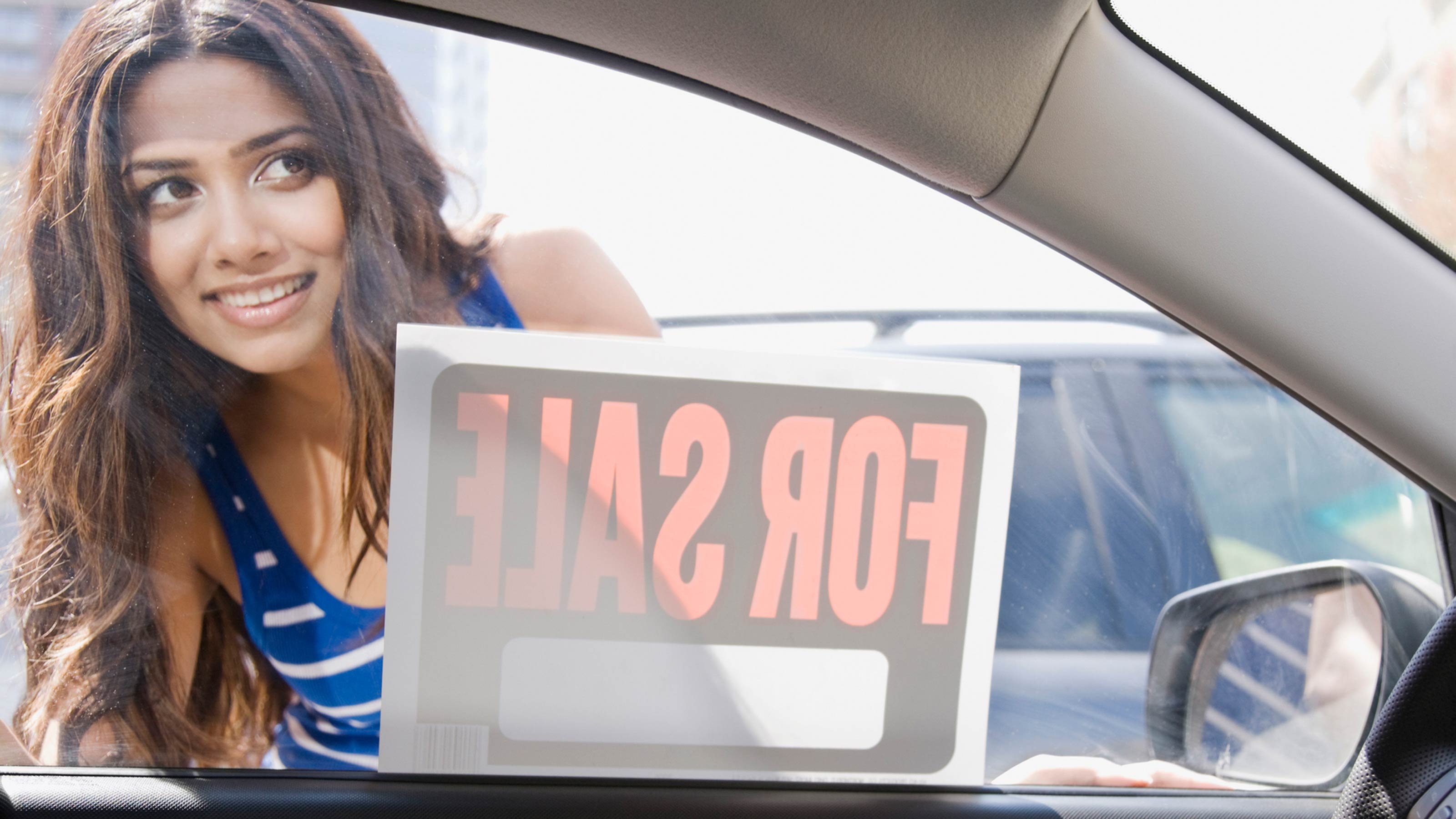Getting Your First Car Loan
First-time borrowers may have better luck getting a loan from a dealer than from a bank.

Profit and prosper with the best of Kiplinger's advice on investing, taxes, retirement, personal finance and much more. Delivered daily. Enter your email in the box and click Sign Me Up.
You are now subscribed
Your newsletter sign-up was successful
Want to add more newsletters?

Delivered daily
Kiplinger Today
Profit and prosper with the best of Kiplinger's advice on investing, taxes, retirement, personal finance and much more delivered daily. Smart money moves start here.

Sent five days a week
Kiplinger A Step Ahead
Get practical help to make better financial decisions in your everyday life, from spending to savings on top deals.

Delivered daily
Kiplinger Closing Bell
Get today's biggest financial and investing headlines delivered to your inbox every day the U.S. stock market is open.

Sent twice a week
Kiplinger Adviser Intel
Financial pros across the country share best practices and fresh tactics to preserve and grow your wealth.

Delivered weekly
Kiplinger Tax Tips
Trim your federal and state tax bills with practical tax-planning and tax-cutting strategies.

Sent twice a week
Kiplinger Retirement Tips
Your twice-a-week guide to planning and enjoying a financially secure and richly rewarding retirement

Sent bimonthly.
Kiplinger Adviser Angle
Insights for advisers, wealth managers and other financial professionals.

Sent twice a week
Kiplinger Investing Weekly
Your twice-a-week roundup of promising stocks, funds, companies and industries you should consider, ones you should avoid, and why.

Sent weekly for six weeks
Kiplinger Invest for Retirement
Your step-by-step six-part series on how to invest for retirement, from devising a successful strategy to exactly which investments to choose.
OUR READER
Who: Devon Madison, 23
Where: Philadelphia
From just $107.88 $24.99 for Kiplinger Personal Finance
Become a smarter, better informed investor. Subscribe from just $107.88 $24.99, plus get up to 4 Special Issues

Sign up for Kiplinger’s Free Newsletters
Profit and prosper with the best of expert advice on investing, taxes, retirement, personal finance and more - straight to your e-mail.
Profit and prosper with the best of expert advice - straight to your e-mail.
Question: I graduated last year and need to buy a car. How do I get a loan?

Devon works as a special education elementary school teacher, her first job since graduating from Vanderbilt University last year. She has been driving her parents’ 2002 Honda Civic, but she wants to cut the cord. "I want to buy a reliable used car that’s not a clunker," she says.
Like many young people, Devon can't afford to write a check for a trouble-free used car, which she figures would take at least $10,000. She has some savings for a down payment, and she'll need to borrow the rest—and that's the problem. A few months ago, she found a car and applied for a loan at her own bank. She was turned down. Then she applied to another bank. No dice. Devon even talked to a credit union, but the prospects didn’t seem encouraging so she didn’t apply.
There's no indication that Devon is a high-risk borrower. She applied for and got a credit card when she graduated, pays her rent and other bills on time, and is starting to repay her college loans. Both banks said her credit score was more than respectable (See 6 Things to Know About Credit Scores). So what’s the roadblock?
"Not having any negatives on her report is a plus, but the lack of a solid credit history definitely makes it hard to get her first loan," says Gerri Detwiler, director of consumer education for Credit.com. Because rent and utility payments aren't reported to credit bureaus unless you're delinquent, a credit card can build a history if you make small purchases and pay them off like clockwork. But what if you need a loan right away?
It may pay to skip banks and head straight to the car dealer, says Claes Bell, auto expert at Bankrate.com. "Dealer financing tends to have looser standards," Bell says. Dealers often set up agreements with lenders to send buyers their way in exchange for lenient loan criteria. Also, some manufacturers, such as Honda and Toyota, offer recent graduates (within two years) special loan programs for new and certified used cars through their captive finance companies. For example, Honda offers deferred payments for three months with two months of zero interest if you put at least 5% down and have proof of employment.
Regardless of your credit history, the more cash you bring to the table, the more likely you are to get the keys. Devon has about $2,000 saved toward a $10,000 vehicle; for used cars, lenders like to see 20% down, so she’s in good shape. Plus, auto loans are historically cheap, with rates for 60-month loans averaging 4.5%. So even if Devon doesn’t get the best terms, her payments should be affordable.
She did it! Shortly after our interview with Devon, she found a 2008 Honda Civic for just under $12,000. She persuaded the dealer over the phone to lower the price to $11,000. She was preapproved for financing on the dealer's Web site, and she got a rate of 5.2%. The car was not certified, so she couldn't apply through Honda's new-grad program. But a certified car would have been more expensive, and Devon wanted to stay close to her budget. The payments for six years are a manageable $200 a month and will build her credit history.
Follow Jessica and the whole Starting Out Kiplinger team on Twitter.
Profit and prosper with the best of Kiplinger's advice on investing, taxes, retirement, personal finance and much more. Delivered daily. Enter your email in the box and click Sign Me Up.

-
 Betting on Super Bowl 2026? New IRS Tax Changes Could Cost You
Betting on Super Bowl 2026? New IRS Tax Changes Could Cost YouTaxable Income When Super Bowl LX hype fades, some fans may be surprised to learn that sports betting tax rules have shifted.
-
 How Much It Costs to Host a Super Bowl Party in 2026
How Much It Costs to Host a Super Bowl Party in 2026Hosting a Super Bowl party in 2026 could cost you. Here's a breakdown of food, drink and entertainment costs — plus ways to save.
-
 3 Reasons to Use a 5-Year CD As You Approach Retirement
3 Reasons to Use a 5-Year CD As You Approach RetirementA five-year CD can help you reach other milestones as you approach retirement.
-
 10 Things You Should Know About Buying a Car Today, Even if You've Bought Before
10 Things You Should Know About Buying a Car Today, Even if You've Bought BeforeIf buying a car is on your to-do list, and it's been a while since you went shopping for a new one, this guide will help avoid any nasty shocks in the showroom.
-
 Get the Best Car Deal in Retirement: Here's the Trick
Get the Best Car Deal in Retirement: Here's the TrickPlanning on shopping for a new car this Labor Day weekend? Here’s how to haggle for a better price, even though you're retired.
-
 7 Gas-Saving Tips That Actually Work
7 Gas-Saving Tips That Actually WorkThese are gas-saving tips that will actually work for you and your car this year.
-
 Four Smart Steps To Take Before Buying Your First Home
Four Smart Steps To Take Before Buying Your First Homehome Buying your first home can be daunting. Here are four things you need to do years before you start house-hunting to prepare financially for the biggest purchase of your life.
-
 Want to Lease an EV? The Tax Credit 'Loophole' for That Is Going Away Soon
Want to Lease an EV? The Tax Credit 'Loophole' for That Is Going Away SoonTax Credits If you are deciding whether to lease or buy an electric vehicle, here is what you need to know about how the EV lease tax credit works now that it will be eliminated under Trump's new tax law.
-
 Car Buying in a Topsy-Turvy Market
Car Buying in a Topsy-Turvy MarketYou need a new car? Good luck with that! What should you do? We've got some answers.
-
 Watch Out for Flood-Damaged Cars from Hurricane Ian
Watch Out for Flood-Damaged Cars from Hurricane IanBuying & Leasing a Car In the wake of Hurricane Ian, more flood-damaged cars may hit the market. Car prices may rise further because of increased demand as well.
-
 Car Buyers: The 3-Day Grace Period Is Just a Myth!
Car Buyers: The 3-Day Grace Period Is Just a Myth!Buying & Leasing a Car Many car buyers think they have three days after making a purchase to return a car. Here’s where they’re going wrong, and what they should do instead to get a decent used car.